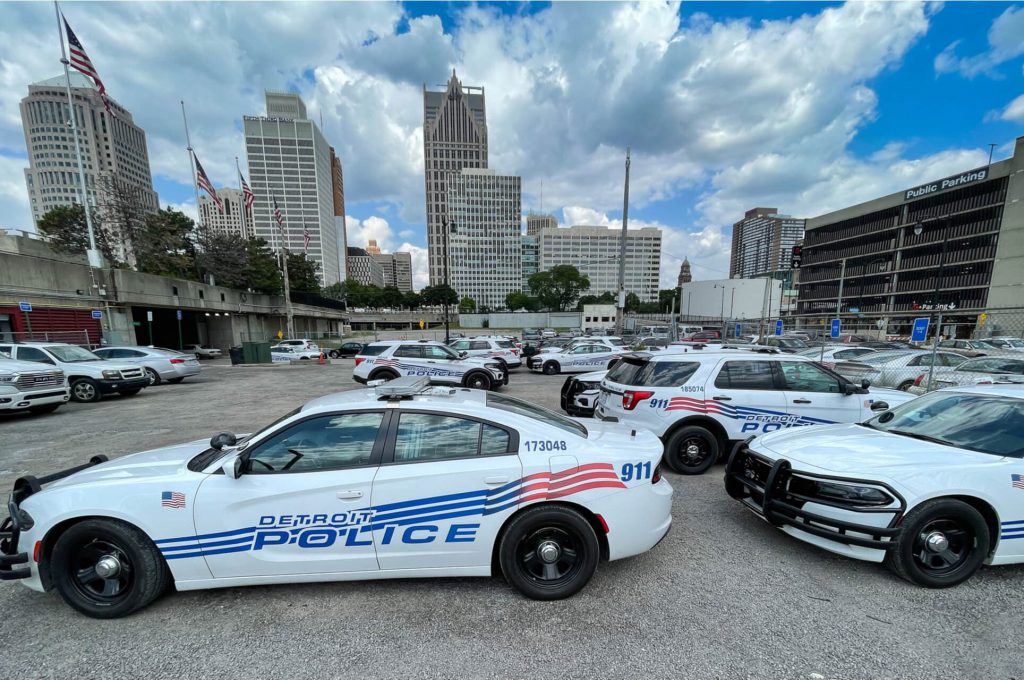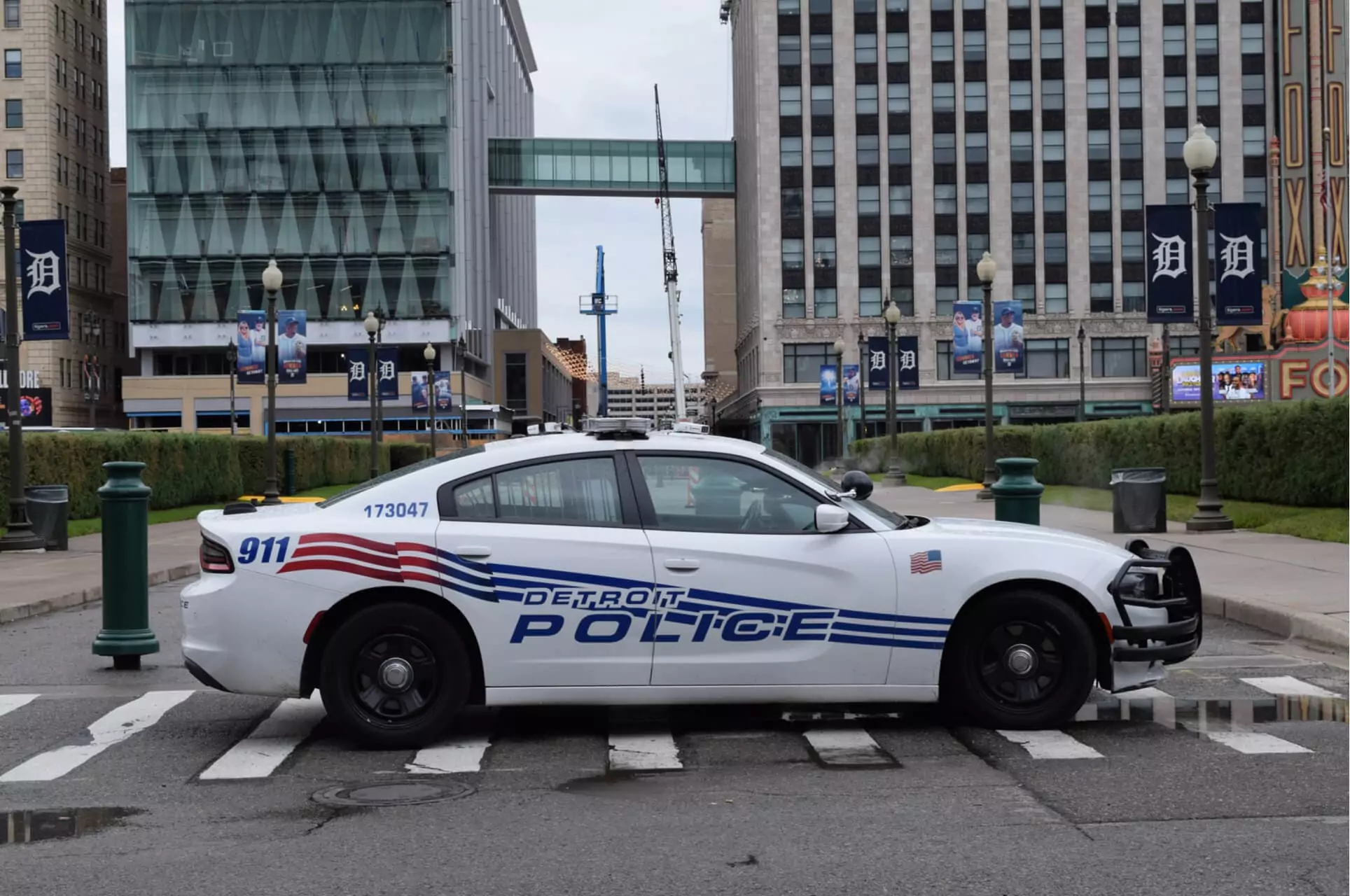The COVID-19 pandemic and its associated lockdowns have defined our lives, one way or another, for nearly two years now. From politics to entertainment, every piece of news we read seems to be colored by its relationship with the pandemic…and crime has been no exception.
While there are examples of this across the country, one state that’s been drastically affected is Michigan. Michigan has seen a notable rise in crime since the pandemic started, and so are now looking to use government COVID relief funding to help improve the situation.
CRIME DURING THE PANDEMIC
Crime statistics are in continual flux, as they are affected by a whole host of factors. With so many variables at play, it can be almost impossible to determine what causes a rise or drop at any given time. But the pandemic has been an exception to this rule. With little else happening, it’s fair to say that the COVID-19 lockdowns could be credited for any major fluctuations in crime rates during that period.

Overall, crime has dropped during the pandemic. As the lockdowns began in March 2020, crime fell by 23% across the USA. However, this is a very broad statistic and doesn’t tell the whole story. As people were staying at home, crimes such as burglaries and home invasions fell dramatically. However, commercial robberies and car thefts rose due to there being fewer people on the streets. Drug crimes fell as people had their mobility restricted, but domestic violence cases started to rise.
As the pandemic went on, property crimes such as burglaries remained low, but there has been a concerning spike in homicides. The National Commission on COVID-19 and Criminal Justice found homicide rates were 30% higher in 2020 compared to 2019. This is most likely due to social unrest, tensions from staying at home and overall stress from a year and a half of COVID restrictions.
VIOLENT CRIME IN MICHIGAN
While Michigan has a long and unfortunate history of violent crime, the past year has been particularly devastating. Across the state, there has been a 12% overall rise in crime, and Detroit remains one of the most violent cities in the USA per capita, with 2,248 violent crimes per 100,000 residents. Detroit recorded its 186th homicide in late July, 16 more than at the time in 2020. Meanwhile, the mayor of Flint declared a state of emergency in July to combat rising gun violence, as homicides climbed by about a third compared to the same period in 2020.

Grand Rapids recorded 38 homicides in 2020, an all-time high. Kalamazoo had 15 homicides in 2020, the most in at least a quarter-century. Across the state, domestic violence cases have almost doubled, as have domestic homicides. And all of this has put a strain on the courts, as Wayne County Prosecutor Kym Worthy said, “We’ve got 3,000 trials backed up; 36th District Court has 5,000 cases backed up, and we have 24 other district courts in this state,”
THE AMERICAN RESCUE PLAN ACT
Relief may come, at least partially, in the form of increased funding from the federal government. The American Rescue Plan Act of 2021 was signed by President Biden in March, to distribute $1.9 trillion in emergency funds. The aim of the Plan is to provide relief for local and state governments and businesses struggling due to COVID-19, as well as to achieve other priorities of the Biden administration and Congress. The distribution of the funds is flexible and will be at the discretion of local governments. They can be used for anything from supporting small businesses and local industries to paying essential workers, to making investments in water, sewer or broadband infrastructure.
This flexibility and local decision-making means that local law enforcement agencies are eligible to take advantage of the extra funding provided by The American Rescue Plan Act. Law enforcement agencies across the country have been making applications to their local decision-makers for additional staff or equipment, or to fund new projects or initiatives. As we’ve seen from how COVID has affected crime statistics, this is very much in keeping with the spirit of the Act and the intended purpose of the funds.
MICHIGAN’S PLAN FOR ACTION
On August 16th, Gov. Gretchen Whitmer announced a $75 million three-pronged program that aims to reduce violence by using emergency funds provided by The American Rescue Plan Act. The three parts of the program are to invest in police departments to hire and retain officers, to get illegal guns off the streets, and to provide education and job training.

The first part of the initiative is to use funds to hire more police officers and encourage them to live in the communities they serve. Funds also would be provided to hire visiting judges to address the three-year backlog of court cases.
In order to get guns off the streets, Michigan lawmakers are looking at the root causes behind violent crimes, rather than just making more arrests. “Just taking guns off the street alone won’t work, because there are always more guns to replace them,” Prosecutor Kym Worthy said. Instead, the state is looking to reduce gun crime by expanding jail diversion programs for nonviolent crimes, and investing mental health support.
Thirdly, some of the funding will be put towards providing education and training that will give young people opportunities that will steer them away from criminal activity. Once again, the idea is to deal with the underlying social issues rather than just the symptomatic crime. As Interim Detroit Police Chief James White said, “You cannot arrest your way out of these problems, because the moment we arrest someone there’s someone else lining up to make a bad decision.”

